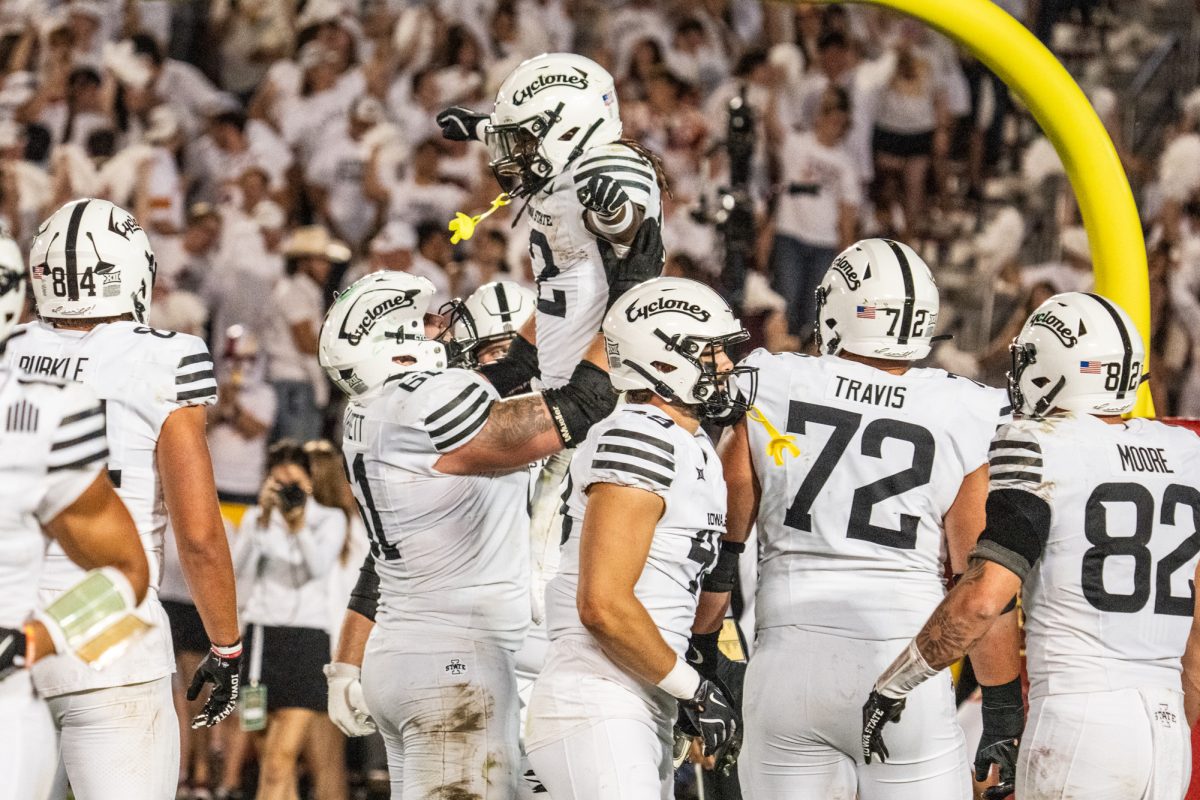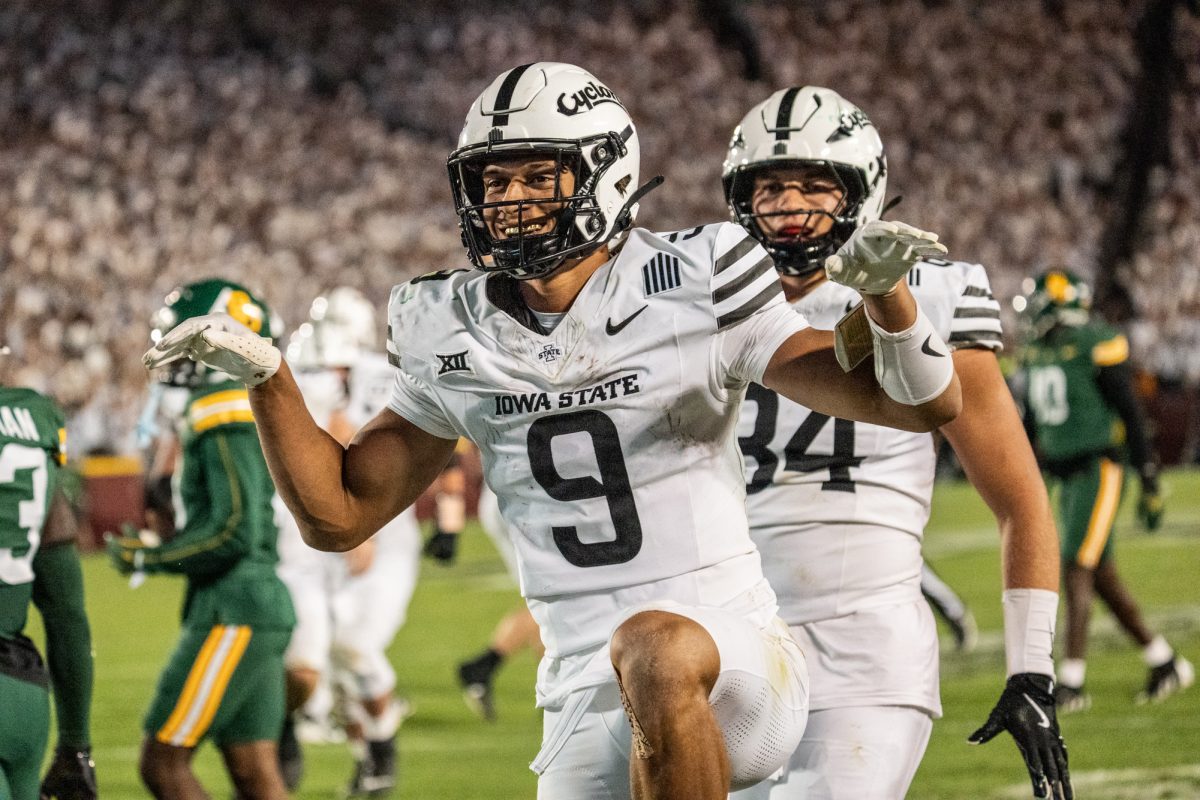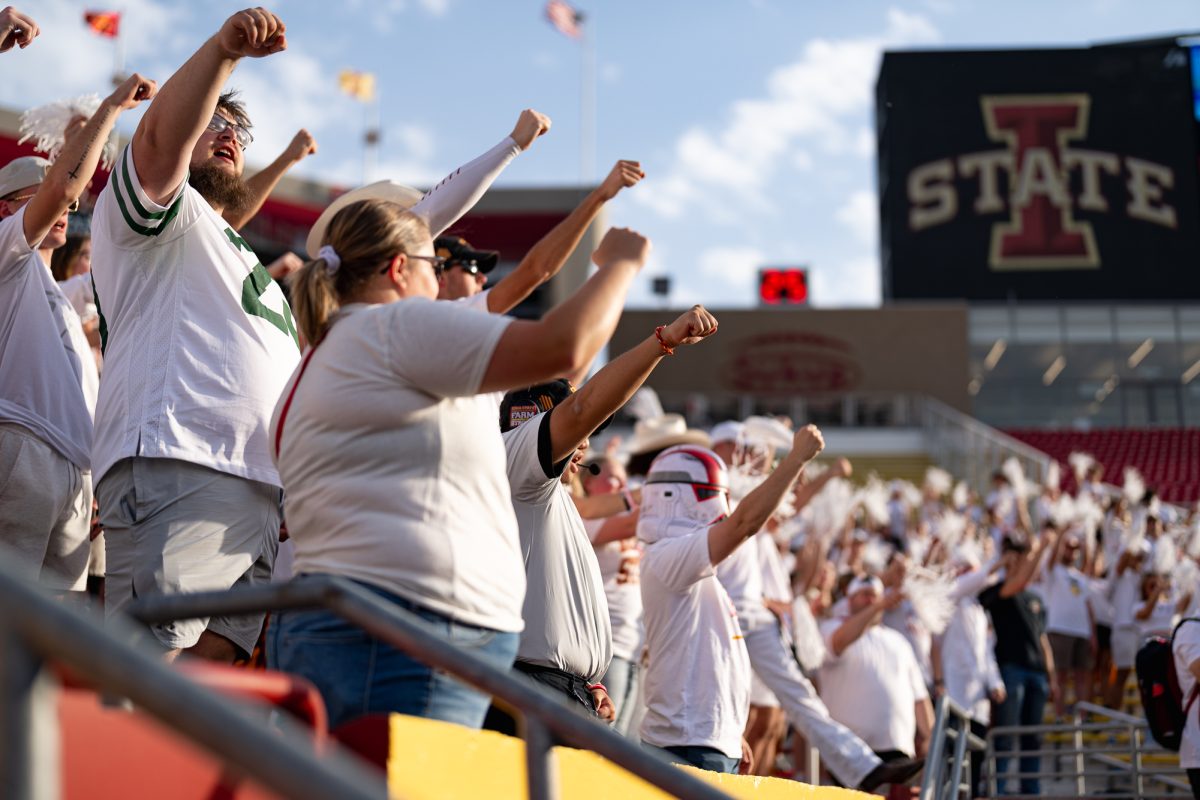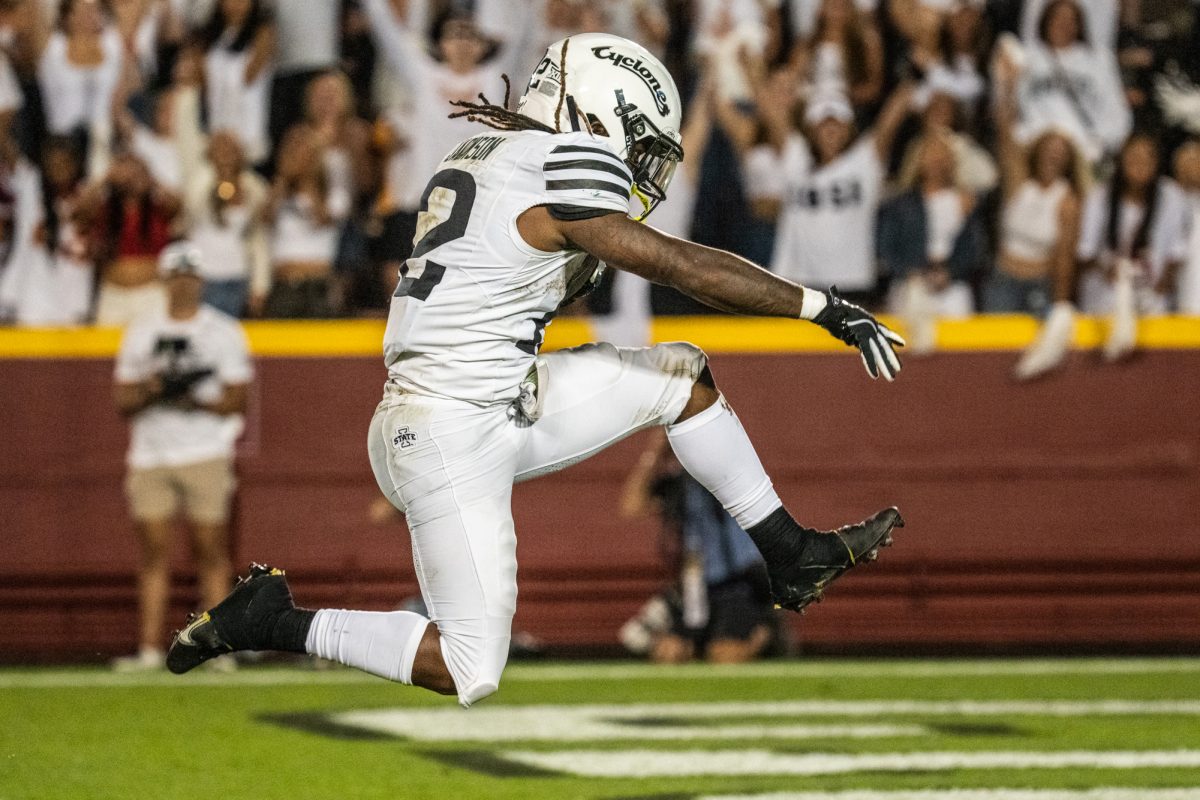Workshop offers African dance practice
April 9, 1999
Students who have never danced to the beat of the gjembe will get their chance this weekend.
Atlanta-based choreographer Samba Diallo will be hosting workshops on African dance Friday and Saturday.
Nicole Noland, director of Ames Few Dance Theatre, said Diallo will give a short performance during the workshops, but the bulk of the performance will be dancing and practicing the steps.
In the past, Ames Few has hosted workshops on the merengue and belly dancing. The group has also featured an internationally-renowned master drummer.
“I teach and invite guest instructors to perform with us,” Noland said.
Ames Few was able to snag Diallo because of Noland’s Atlanta connections.
“I left ISU for two years from 1996 to 1998 and moved to Atlanta,” Noland said. “I started taking classes from him, and then he formed his own dance company. It was called Attunblan Company, named after the messenger drums used to call the community when there was a major announcement or festival.”
Diallo often performed and choreographed before forming the dance company.
“Since I was little I have been dancing,” Diallo said. “I lived in a village. We watched our parents dance and that’s how I learned.”
Diallo has created dances for the opening and closing ceremonies of the 1996 Olympic Games in Atlanta, produced and performed a rendition of “The Nutcracker” for the Kennesaw Dance Troupe and has been a member of the National Ballet of Cope D’Ivoire.
In addition, he has danced at the National Black Art Festival and the Atlanta Sesquicentennial.
Noland said the dances Diallo teaches are primarily from the Ivory Coast and Africa.
“Most dances have cultural meaning,” Noland said. “Some symbolize the harvest, others symbolize courtship and others depict the lives of men and women.”
One of the dances Diallo likes to perform is the harvest dance.
“The harvest dance is pure form,” Diallo said. “It shows someone bent over their drum, tired from laboring. From that this dance comes. It’s a dance of will power, of working hard when you are tired and working with the beat of the drum.”
Diallo said certain gestures are symbolic in this dance.
“When you bend down, you are planting, watering or digging in the ground. Everything you do has meaning,” he said.
Diallo outlined another African dance of festivity, which uses a type of African drum known as the gjembe.
“People all over the world know the gjembe,” he said. “The beat is a celebration. This is a joyful dance that says, ‘Come and join me, come dance with us.’ The people who dance to the beat of the gjembe are always smiling from beginning to end.”
Though most people may think the dancing is rigorous and hard to do, Diallo rejected the notion that African dance is difficult.
“People don’t understand the concept,” Diallo said. “There are challenging forms of African dance and there are graceful forms which don’t require as much energy.”
He compared the first day of African dance to the first day of a workout.
“[Dancers] come to me and say, ‘Samba, my neck hurts,'” Diallo said. “I say if your neck hurts, don’t worry. Come learn the steps. Because I’ve been there. This will go away. The move you learn won’t make you sore if you keep practicing. You just have to keep on working.”
Diallo added, “Every move you do, even when you walk — this is dancing.”
Diallo will conduct a workshop Friday at 7 p.m. in room 198 of the Forker building and Saturday at 9 a.m. in room 196 of the Forker building. Admission to the dance workshop is free to all ISU students. The cost for the workshop is $5 for adults and $3 for children.
The workshop is sponsored by Iowa State dance troupe and Ames Few Dance Theatre.






